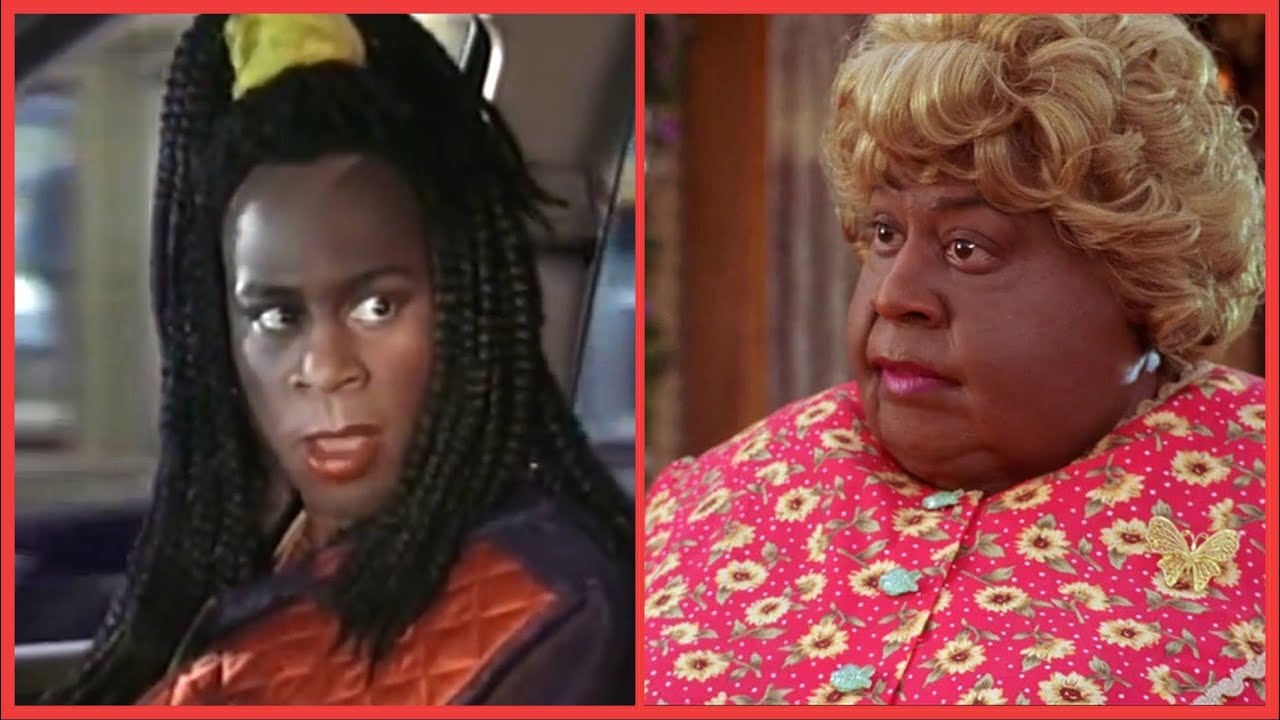(ThyBlackMan.com) In recent years, the entertainment industry has witnessed a significant shift in the way gender norms and roles are portrayed, reflecting broader social changes and movements towards inclusivity and diversity. Black male actors wearing dresses in films and television shows has emerged as a particularly notable trend, one that challenges traditional stereotypes and sparks discussions about masculinity, identity, and cultural expression. This article delves into the implications of this trend, the historical context, reactions from the public and critics, and the broader societal impacts of these portrayals.

Historical Context and Evolution
Historically, cross-dressing in theater dates back to Shakespearean times when men played all roles, including female parts. However, in the context of modern cinema, the act of black male actors wearing dresses takes on additional layers of cultural and racial significance. It’s essential to understand the backdrop of rigid gender norms and the stereotyping of black masculinity that has often confined black male actors to specific types of roles — typically, those that emphasize strength, stoicism, or aggression.
Early Instances and Key Figures
One of the early pioneers of challenging these norms in Hollywood was Flip Wilson, whose portrayal of Geraldine Jones on his television show “The Flip Wilson Show” in the early 1970s brought a comedic but nuanced look at gender roles. Wilson’s Geraldine was not just a humorous character but also a portrayal that questioned the rigidity of gender expectations in a playful, mainstream format.
Eddie Murphy and Tyler Perry
Fast forward to the late 20th and early 21st centuries, actors like Eddie Murphy and Tyler Perry popularized the trend further. Murphy’s roles in films like “The Nutty Professor” and “Norbit,” where he portrayed multiple characters of different genders, showcased his versatility and also played with the idea of gender fluidity, albeit often in comedic contexts. Tyler Perry’s Madea — a tough-talking Southern matriarch — became not just a cultural icon but also a symbol of how black masculinity could embrace attributes traditionally seen as feminine to create characters that resonated with a wide audience.
Cultural Impact and Criticism
The portrayal of black men in dresses has been met with mixed reactions. On one side, it has been praised for breaking down the barriers of traditional masculinity and allowing black men to explore a range of characters and expressions that defy stereotypical roles. It brings to the forefront conversations about the fluidity of gender and the performative nature of gender roles, highlighted by Judith Butler’s theory of gender performativity.
Backlash and Concerns
Conversely, there has been significant backlash from certain segments of the community and culture critics who argue that these portrayals reinforce negative stereotypes about black men, particularly the trope of emasculating black men for comedic relief. Critics like Spike Lee have voiced concerns about the portrayal of black men in film and television, emphasizing the need for dignity in representation and cautioning against the potential for these images to perpetuate harmful stereotypes.
Intersectionality and Queer Representation
It is also crucial to discuss the intersectionality of race, gender, and sexuality in these portrayals. Black male actors in dresses have sometimes intersected with LGBTQ+ themes, either implicitly or explicitly. This intersection can serve as a powerful tool for visibility and representation but also faces the challenge of balancing respectful representation with the risk of caricature.
The Influence of RuPaul and Queer Cinema
RuPaul, arguably one of the most famous drag performers in the world, has brought the conversation of black masculinity and femininity into mainstream media through the show “RuPaul’s Drag Race.” This inclusion has provided a platform not just for discussing gender fluidity but also for exploring the nuances of what it means to be a black man challenging gender norms in both the queer and mainstream contexts.
Psychological and Societal Implications
The impact of seeing black male actors in dresses extends beyond entertainment and enters the realms of psychology and societal norms. For many young black men, these portrayals offer a broader palette of emotional and behavioral scripts, breaking away from the confines of traditional masculinity and opening up new possibilities for self-expression and identity.
Conclusion: A Continuing Dialogue
The trend of black male actors in dresses is more than a mere entertainment gimmick; it is a reflection of evolving societal norms and the ongoing dialogue about gender, race, and representation in media. As society continues to grapple with these issues, the roles these actors take on will undoubtedly play a crucial role in shaping perceptions, discussions, and ultimately, the realities of gender and racial identity in the 21st century.
In conclusion, while the portrayal of black male actors in dresses might be controversial, it undoubtedly serves as a catalyst for important conversations about gender and identity in modern society. It challenges viewers to reconsider their perceptions of masculinity and femininity, and highlights the fluidity and constructed nature of gender. As the industry evolves, it will be important to continue these conversations, ensuring that representation is respectful, diverse, and inclusive.
Staff Writer; Malik Jackson
One can contact this brother at; MJackson@ThyBlackMan.com.

















Leave a Reply